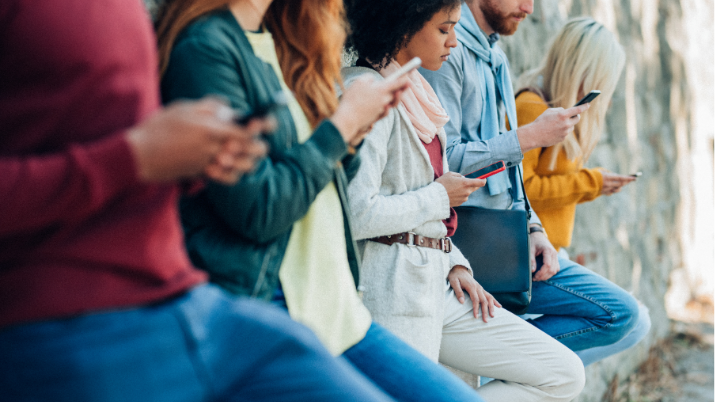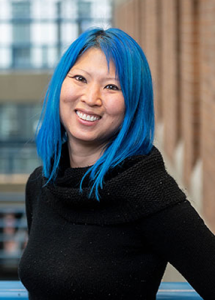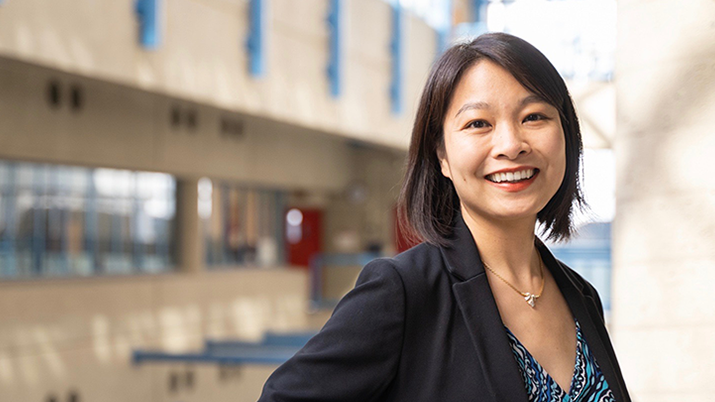

Research led by psychology professor Dr. Amori Mikami examined the effects of quitting social media versus using it more intentionally.
Young people’s mental health may depend on how they use social media, rather than how much time they spend using it, according to a new study by UBC Psychology researchers.
The research, led by psychology professor Dr. Amori Mikami (she/her) and published this week in the Journal of Experimental Psychology: General, examined the effects of quitting social media versus using it more intentionally.
The results showed that users who thoughtfully managed their online interactions, as well as those who abstained from social media entirely, saw mental health benefits—particularly in reducing symptoms of anxiety, depression and loneliness.
With social media use nearly universal among young adults, especially those ages 17-29, concerns over its impact on mental health have grown.
“There’s a lot of talk about how damaging social media can be, but our team wanted to see if this was really the full picture or if the way people engage with social media might make a difference.”
Instead of treating social media as an all-or-nothing choice, the study explored whether helping young adults learn “smarter” engagement techniques could enhance their well-being.
In the six-week study, 393 Canadian young adults with some mental health symptoms and concerns about social media’s impact on their mental health were split into three groups:
- a control group that continued their usual routines
- an abstinence group asked to stop using social media entirely
- a “tutorial” group that was coached in intentional usage
The tutorials guided participants on fostering meaningful online connections, limiting interactions that encouraged self-comparison, and carefully selecting who they followed.
Both the abstinence and tutorial groups reduced their social media use and experienced fewer social comparisons—a common trigger for anxiety and low self-esteem. While the tutorial group didn’t cut back on social media as much as those who tried to abstain completely, they reported notable improvements in loneliness and fear of missing out (FOMO).
By comparison, those who abstained from social media altogether were more successful in reducing depression and anxiety symptoms, yet reported no improvement in loneliness.
“Cutting off social media might reduce some of the pressures young adults feel around presenting a curated image of themselves online. But, stopping social media might also deprive young adults of social connections with friends and family, leading to feelings of isolation.”
Dr. Mikami, along with graduate students Adri Khalis and Vasileia Karasavva, used an approach with the tutorial group that emphasized quality over quantity in social media interactions. By muting or unfollowing accounts that triggered envy or negative self-comparisons and prioritizing close friendships, tutorial participants built a healthier online environment. Rather than passively scrolling, they were encouraged to actively engage with friends by commenting or sending direct messages—a behaviour that tends to deepen meaningful connections while helping users feel more socially supported.
For Dr. Mikami, this balanced approach may be a realistic alternative to complete abstinence, which may not be feasible for many young adults.
“Social media is here to stay,” she said. “And for many people, quitting isn’t a realistic option. But with the right guidance, young adults can curate a more positive experience, using social media to support their mental health instead of detracting from it.”
Dr. Mikami believes the findings can offer valuable insights for mental health programs and schools. She envisions future workshops and educational sessions where young adults learn to use social media as a tool to strengthen their relationships rather than as a source of comparison and stress. This approach, she suggests, could break the cycle of quitting social media only to return later, sometimes with worse effects.


Dr. Amori Mikami
The research emphasizes that young people’s well-being is closely tied to how they engage. By offering alternative ways to interact online, Dr. Mikami’s team has shown that positive mental health outcomes are possible without sacrificing the social connectivity that platforms provide. As she put it: “For many young people, it’s not about logging off. It’s about leaning in—in the right way.”
This news release was originally written by Erik Rolfsen and posted on the UBC News website.


